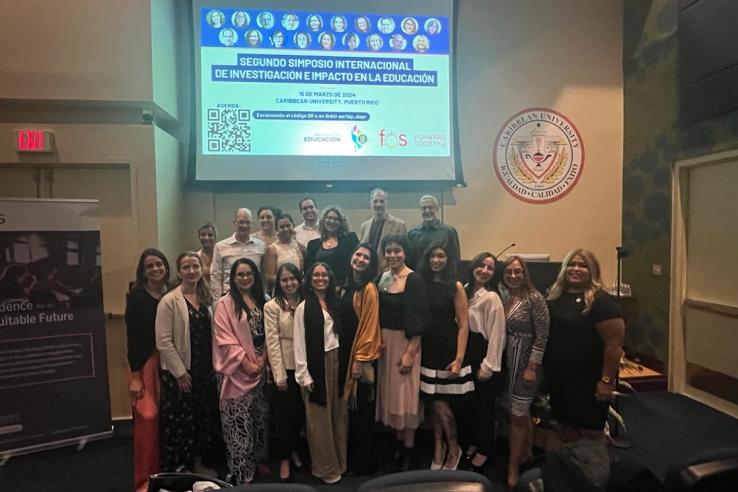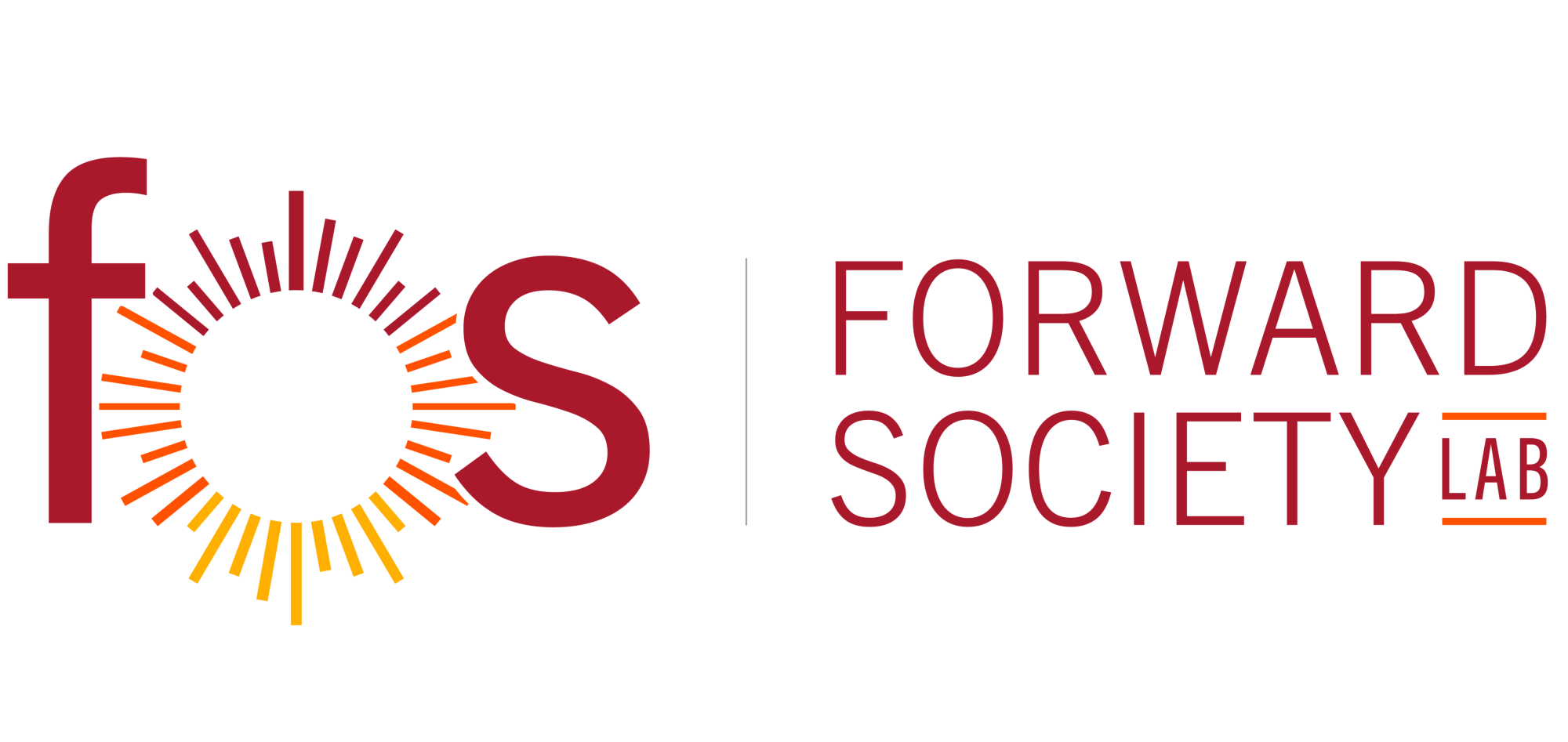Generating evidence for educational outcomes in Puerto Rico through collaborative partnerships


The Second International Symposium on Research and Impact in Education highlighted the value of research-practice partnerships in building and using evidence to inform education policy.
On March 15, 2024, the Forward Society (FOS) Lab and the Puerto Rico Department of Education (PRDE) hosted the Second International Symposium on Research and Impact in Education, with participation from J-PAL North America. The event brought together over 80 people, including researchers, implementing partners, research centers, educators, students, and community members, to share results and experiences from randomized evaluations focused on improving educational outcomes for students in Puerto Rico.
The symposium celebrated the collaborative partnerships between research centers, such as J-PAL North America and the FOS Lab, implementing partners, including the Puerto Rico Department of Education, and researchers to promote evidence-based policymaking.
The school system in Puerto Rico has faced long-standing challenges that have affected student academic performance, and the projects conducted through this partnership sought to generate evidence and a greater understanding of what can most effectively support student learning. J-PAL North America has been working with the Department of Education since 2017 to design and launch randomized evaluations in Puerto Rico, and this partnership has succeeded thanks to the strong willingness and interest from the Department of Education to generate and learn from evidence.
“The Puerto Rico Department of Education, through the Institute for Professional Development, trusts in the valuable relationship that we have developed with J-PAL North America over the past seven years, and with FOS lab since its launch in 2023. We have overcome many challenges together to design, implement, and evaluate high-impact projects seeking to improve student achievement. At Friday’s event, we had a chance to celebrate this collaboration and the meaningful change it is driving in Puerto Rico’s public administration and education systems,” said Damarys Varela Velez, Operations Manager at the Institute for Professional Development of PRDE.
The FOS Lab—which launched in November 2023— is another key partner in the work being conducted in Puerto Rico. The Lab seeks to amplify the voices of communities by developing research-practice partnerships that support the sustainability of research projects and evidence-based implementation. While the Lab was only recently formed, its researchers have a long-standing partnership history in Puerto Rico.
Gustavo Bobonis, Co-Director of the FOS Lab, also presented and shared how the FOS Lab can fill in a gap by connecting partners to researchers, “Until FOS was formed, we did not have an entity to lead this close collaboration between government policymakers, researchers, and other actors who are interested in being catalysts for change. I am thrilled that FOS can play this role—supporting the partnerships between these key stakeholders and ensuring marginalized community voices are represented as we advance evidence-based policymaking in Puerto Rico.”
The event also featured panels that highlighted results and lessons learned from multiple randomized evaluations using innovative strategies, including ATEMA, which used Khan Academy’s technology to support students learning math; EDUGESPRO, which provides management and leadership training to principals; and ACEmoción, which offers social and emotional training to teachers. The students, teachers, and principals also shared their own experiences with the programs.
Yadira Vázquez, a teacher from the Puerto Rico school system, and mentor for the ATEMA project, shared the impact that ATEMA has had in her classroom, “this is the second year I have implemented ATEMA in my classroom. The students love it and I’ve seen their math skills improve. It is an excellent tool. Regarding evaluation, it is always important to evaluate programs to make good decisions. For example, in the case of ATEMA, the evaluation helps identify the program challenges and thus make decisions that are assertive to improve the implementation and effectiveness of the program for the benefit of students, teachers, and principals.”
The research results and continuous learning celebrated at the event are a testament to the positive benefits partnerships between research centers, researchers, and implementing partners can create by building and using evidence in policymaking decisions.
J-PAL North America’s Research Manager, Daniela Gómez Treviño, mentioned the importance of making these partnerships a continuous effort at the event: “By working in local contexts, knowledge is promoted. Every time that we work on an impact evaluation in Puerto Rico, the local research team, members of the Department of Education, teachers, directors, and everyone who participates in the projects learn how an evaluation is done. Each time, the ability to do these evaluations internally and independently grows. We want Puerto Rico to be a leader in program evaluations and to have locally trained personnel to carry out impact evaluations of programs like the ones that were presented at this event.”
##